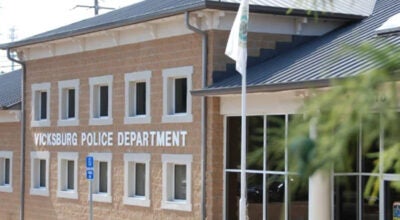Vets fear another battle, this time to save their club
Published 12:00 am Tuesday, May 29, 2001
[05/29/01] There’s a bar in the back of the Veterans of Foreign Wars building on Indiana Avenue, a place where men, mostly Vietnam vets, go at about 5 in the afternoon to try to forget about work and a lot of other things.
Herman Mullen goes there a lot. He’s a Vicksburg native who earned his admission to the VFW by spending a year in Southeast Asia in the late 1960s.
He’s not like some of the other 90 members of post No. 10734 he can talk about his war experience without getting overtly angry or sad. He did it last Thursday, with a straight face and steady voice, for a guest who wanted to know what life was like for American soldiers on the island of Hontre, 12 miles off the coast of Vietnam, from 1967 to 1968.
He left a gap the size of his Crown Royal bottle between his hands to show the breadth of the snakes that left tracks on the walkway between his hooch and his unit’s latrine. He talked about how seeing Vietnamese peasants carrying stacks of wood for three miles on their backs made him forget about having to settle for second-hand bicycles on Culkin Road as a kid. And he talked about the rest-and-recuperation trip he took in the middle of his tour of duty to Taiwan, where he drank 2-cent beer with a pretty Chinese “chaperone” while a Vietcong mortar round landed in his bedroom back on Hontre.
After next month, Mullen might have to find another place to tell his stories. The VFW’s Indiana Avenue branch is having trouble paying its overhead costs, a topic that will be addressed Tuesday night at a special chapter meeting. If the vets don’t get enough money to start making their payments by the end of June, they could lose their building.
It’s a possibility that brings tears to the eyes of the branch’s commander, Bobby G. Sanders, a man who was steely enough during the Vietnam War to fly scores of secret B-52 bombing missions over Cambodia and Laos.
Sanders helped construct the chapter building in 1999 when the Indiana Avenue VFW split from the older branch on Washington Street. He knows most of the men in his post won’t go back to the old one, even if they have to go straight home from work in the afternoon.
They also aren’t likely customers at Vicksburg’s other after-work watering holes. Mullen said he and his veteran buddies just don’t fit in at what he calls “dives.” They don’t like dim lights, big crowds and loud conversation, Mullen said. They just like to sit for an hour or so with other men who spent at least a year apiece running from bullets through a foreign jungle.
Sanders said he thinks his men can get through their current financial straits just like most of them made it through America’s longest war.
“We know we can turn the corner,” Sanders said. “We just need to get as many of our members together as possible. It is very important that we unite behind this place. It’s a special place.”
It’s also a place with a special culture, said Larry Inman, the post’s junior vice commander whose three tours of duty in Vietnam taught him never to trust anyone behind him.
“This is where vets go to unwind and kinda vent,” Inman said. “We talk the same language here.”
It’s not a language that they’d share with their mothers or wives, or even their co-workers. They curse Vietnamese women and children, the ones who made P.K. Parkerson get as flat as a pancake on the ground outside hostile villages.
“What the people and the media don’t realize is that the same kids who were sleeping on the floor during the day were shooting at (us) at night,” said Parkerson, a Sharkey County native who now sells cars in Vicksburg.
But it was the American government, the vets say, that was the main culprit in the Vietnamese conflict. They never talk about fighting a war; they talk about taking part in a “political action” designed by bureaucrats in Washington to fail.
Then they talk about what happened to them when they came home. Not many met anti-war protesters at the airport, though Parkerson remembers being spit upon by a couple of “flower children” in San Francisco. The words of the peace crowd didn’t hurt nearly as much as the ones they heard from potential employers back in Mississippi.
One of the veterans at the bar, a Vicksburg native who asked not to be identified, thought the machine-related skills he got as a helicopter gunner would land him a factory job back home. He was wrong a lot of other soldiers were coming home from Southeast Asia with similar training, glutting the market.
Such experiences, marked by hardship and indignity, bring the men back together at the VFW bar every week.
Mullen hopes enough members rally around the post’s leaders to help keep it open.
But Inman isn’t optimistic about the chapter’s prospects.
He can’t shake the feeling that other civic groups never run short of money to pay their bills.
“It’s a damn disgrace,” he said. “Veterans have always been second-class citizens. Always have been, always will be. Nothing changes.”





